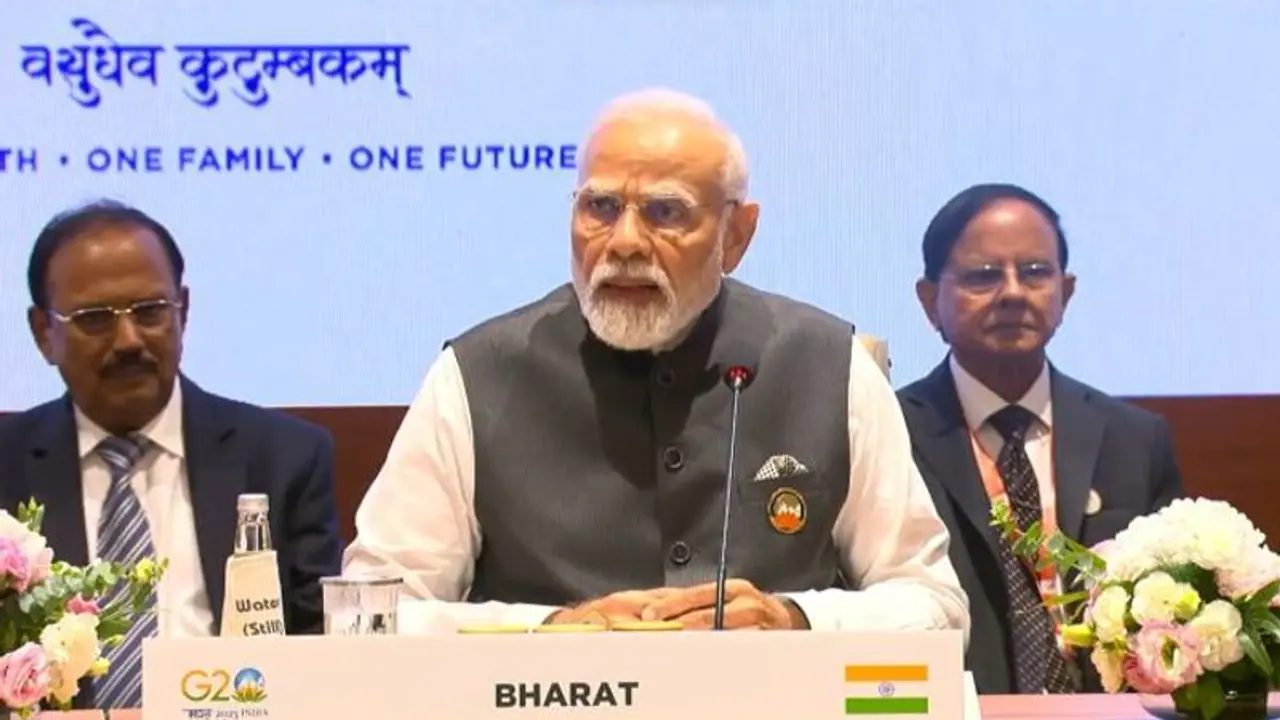Sources told Asianet Newsable, "This will be a historic and first of its kind initiative on cooperation on connectivity and infrastructure involving India, UAE, Saudi Arabia, European Union, France, Italy, Germany and the United States."
Prime Minister Narendra Modi, alongside other world leaders, initiated the India-Middle East-Europe connectivity corridor during the G20 Summit on Saturday. This significant move aims to strengthen trade relations and enhance connectivity among these regions.

Sources told Asianet Newsable, "This will be a historic and first of its kind initiative on cooperation on connectivity and infrastructure involving India, UAE, Saudi Arabia, European Union, France, Italy, Germany and the United States." The discussion on the corridor happened on the sidelines of the G20 Leader's Summit in New Delhi.
Prime Minister Narendra Modi expressed, "This corridor will exemplify a sustainable path for the entire world."
President Joe Biden of the United States announced a significant investment in a new railway line extending from Angola to the Indian Ocean, emphasizing the positive impact on job creation and food security. He described it as a transformative investment and called for global unity at this pivotal moment in history.
Saudi Arabia's Prime Minister, Mohammed bin Salman, expressed anticipation for the initiative's implementation, highlighting its potential to establish the most direct link between India, the Middle East, and Europe, potentially reducing travel times by 40 per cent.
Ursula von der Leyen, President of the European Union, echoed this sentiment, emphasizing that the corridor would serve as the swiftest route connecting India, the Middle East, and Europe, thereby significantly expediting travel.
The comprehensive plan, featuring collaboration between the United States, Saudi Arabia, the European Union, the United Arab Emirates, and other key players, aims to establish interconnected data systems, railway networks, ports, electricity grids, and hydrogen pipelines across three crucial regions. While the plan primarily centres on trade, its potential ramifications extend into the political realm. The signatories envision it as a means to integrate India's massive market of 1.4 billion people with Western nations, offering a counterbalance to China's extensive infrastructure investments. Additionally, it holds the promise of bolstering Middle Eastern economies and contributing to the normalization of relations between Israel and the Arab Gulf states.
One notable project within this initiative would connect railway and port facilities throughout the Middle East, encompassing the United Arab Emirates, Saudi Arabia, Jordan, and Israel. This endeavour has the potential to significantly expedite trade between India and Europe, potentially reducing transit times by up to 40 per cent.
The overarching goal of the India–Middle East–Europe economic corridor is to facilitate the development and transportation of "green hydrogen" by enhancing infrastructure. Furthermore, it seeks to fortify telecommunications and data exchange capabilities through the deployment of a new undersea cable connecting the region. Importantly, these projects hold the potential to assist oil-dependent Middle Eastern nations in transitioning away from fossil fuels, a crucial step towards achieving economic diversification and sustainability.
